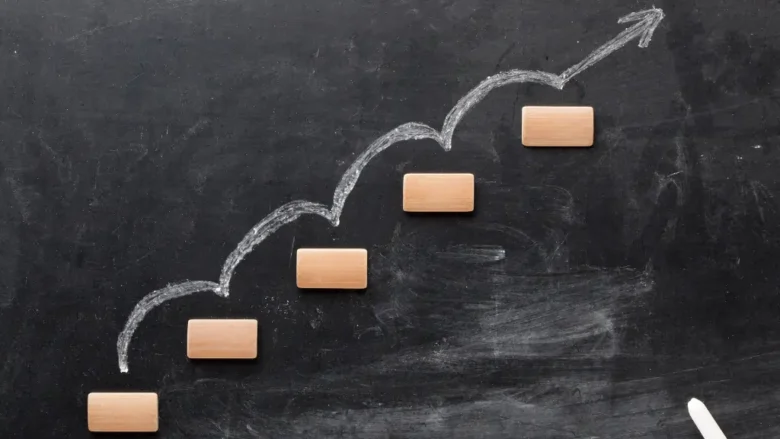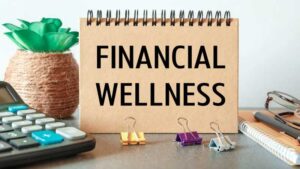Financial health is more than simply having money in your bank. It’s about having the feeling of control, security, and peace with regard to your financial situation. It’s about being able to fulfill your financial obligations now and also being secure about your financial future. A lot of people mistake wealth for health; however, true financial health isn’t based on having a large wealth but rather on being financially secure, prepared, and relaxed. A healthy lifestyle involves good money-management habits as well as smart decision-making as well as the capacity to fully enjoy life without worrying about finances constantly in the background.
Assessing Your Current Financial Situation
The first step towards getting financial health is to have an understanding of your financial situation. This means knowing precisely the amount of money you have and owe and how much you earn and how much you invest. A lot of people don’t bother to look at their accounts at the bank or on credit card statements as it can cause stress, but staying away from the truth will only cause the financial burden. When you write down your monthly expenses, income, debts, and savings, you’ll start to understand the direction your money is heading and what changes must be taken. If you don’t have a complete comprehension of your current situation, it’s difficult to develop a concrete plan to improve.
Creating a Budget That Works for You
Budgeting can be a very effective instrument that can help you gain control of your finances. A budget that isn’t overly restrictive lets you make wise spending decisions and reach your goals without feeling guilty. It is important to develop an achievable budget that is based on your real earnings and expenses. Begin by keeping track of your expenses throughout the month to find patterns. After that, you can divide your expenses into wants, needs, desires, and savings. Assign a portion of your earnings for each and adhere to the plan. Make sure that you have an emergency savings account as well as any debt repayment plan. A well-crafted budget can serve as your guide for financial health and will guide your daily choices and long-term planning.
Building an Emergency Fund
An emergency fund serves as a financial protection that protects you from unexpected expenses like car repairs, medical bills, or even job loss. If you don’t have an emergency savings account, a lot of people are forced to use credit cards or loans when crises happen, which could result in an endless cycle of stress and debt. Financial health requires at minimum three to six months of living expenses earmarked in an individual savings account. Begin small if you need to. Even a little savings each week will add up in time. The calmness that comes from knowing you’re prepared for any eventuality is an essential part of being financially healthy.
Investing in Your Financial Future
Investing can be seen as something only rich people do; however, in reality, it’s an integral aspect of financial health for all. It allows your money to increase over time, helping you build wealth and plan for your financial future. It doesn’t matter if it’s an investment account such as one like a 401(k) or mutual funds, an IRA, or even a basic savings bond. Investing in the right way can make a significant difference in the long term. Be aware of the fundamentals of investing so that you can feel comfortable and confident. Begin small, stay consistent, and always remember you’re your most powerful partner when it comes to advancing your investment. The earlier you begin your journey, the more you’ll gain from the compounding effect of returns and long-term growth.
Practicing Mindful Spending and Saving
Mindfulness isn’t just an ideal way to meditate; it’s a powerful idea with regard to your financial life too. Spending mindfully means being cognizant of the financial choices and making the decision to spend your funds in ways that are consistent with your ideals and goals. When you are making a purchase, take a moment to consider whether it will add value to your life or get you closer to achieving your financial goals. Make savings a routine and automatic element of your schedule. Automate transfer into your account for savings every payday to ensure that you are consistently building up your cushion for financial security. A habit of making sure you spend your money wisely and save consistently is crucial in achieving and maintaining financial health in the long term.
Conclusion
To achieve financial health is a process that requires discipline, patience, and self-awareness. It’s not about never making financial mistakes. It’s about creating a healthy and sustainable financial plan that is compatible with your goals and values. Through assessing your financial situation, establishing the necessary budget, establishing an emergency fund, tackling debt and setting goals, making wise investments, and adopting mindfulness, you can establish a solid foundation for financial wellness. The road to financial well-being might not be straightforward; however, the peace of mind as well as the peace of mind that it provides are well worthwhile.
FAQs
1. What’s the distinction between financial well-being and being wealthy?
Financial health is about stability, security, and a sense of peace and not only having a lot of money. A person can have a very high income yet be financially overwhelmed, whereas a person who earns a low income can be economically healthy by implementing smart strategies and a plan.
2. What is the time it will take to reach financial health?
There is no standard timetable; instead, the duration depends on your starting point, goals, and determination. Some people can see improvements in only a few months. However, others may require several years. The most important thing is consistency and progress each step.
3. Do I need an advisor to manage my finances and achieve financial well-being?
Not necessarily. While a financial adviser can offer valuable advice, a lot of people can achieve financial health by themselves, using budgeting tools and other online sources. The most crucial factor is your readiness to take the lead and acquire knowledge.
4. How can I save money when my income is inconsistent?
Begin with a small amount. By putting aside a couple of dollars per week, you will help yourself build up momentum. Find out what expenses you can eliminate and work to increase your earnings through side jobs or work on a freelance basis. With time, little changes could result in big changes.
5. Do you think it’s ever too late for you to get started on financial health?
Without a doubt, the answer is no. If the time is in your teens, for your 40s or even 60s. It’s not for you to make a decision about how you’ll manage your finances. The earlier you begin taking the first step, the better, but any move in the right direction can make a difference.




